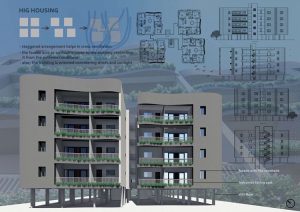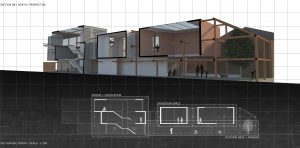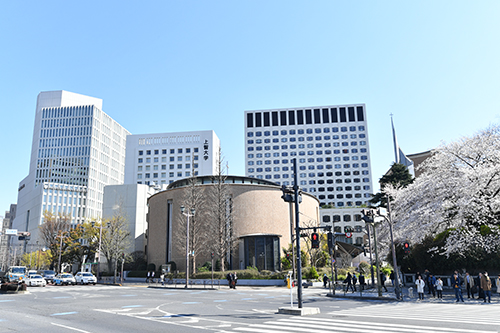Dear architecture students,
Have you ever wondered: “What is it like to study Architecture elsewhere?”
For this article, I have interviewed 11 architecture students all over the world asking about their school, their class and their student life.
You probably think you’ve already known everything about being an Architecture student. But wait and see, you will be surprised😬!
- Interviewee Introduction
- Process to become an Architect in other countries
- What kind of classes do Architecture students take in other countries?
- How much is the school tuition in other countries?
- What software/ tools are used in other countries?
- What do we like about Architecture Major?
Firstly, let me introduce my 11 interviewees:











I’ve gotten my bachelor’s degree in landscape architecture in my home country, Ukraine. Still, because it was hard to evaluate my credits, I started over from getting an associate degree when I arrived in Chicago.
As you can guess, the process to become an architect are all different depending on the country.
I’ve categorized my interviewee’s response into 3 main categories, but even in the same category, they are quite different to one another- some requiring Master’s degree, or practical experience, or exams…
*The following is not the only way to become an architect in each country.
In the UK (including countries such as Scotland, England) you have to finish 3 years of university, 2 years of masters and 2 years of practical work experience. You can go to work as an “Architectural assistant/designer/technician” but you will not be able to call yourself an Architect until you’ve registered yourself on the ARB (Architects Registration Board). -Total of 7years

In Germany it takes 3 years for a bachelor’s degree at a Hochschule (“Technical universities”-which is not the same to “Universities”). You can start the carrier from here but only as a “Contractor”. You will need to get a master’s degree (2 years) to work independently as an architect. -Total of 5years
Japan will be included in this category; to become a 1st-class Architect you need to complete your 4year university course and have at least 2 years of practical building-related experience to qualify to take the “1st– class Kenchikushi” exam -Total of 6years
In Turkey you have the right to practice architecture after getting your 4year-bachelor’s degree and there is no required license. If you wish to practice for the government there is a test that you have to take, but if you’re practicing for a private firm there is no need for any test. Keep in mind that Architectural education in Turkey is mostly about design and not so much on engineering therefore it doesn’t take a lot of time to become an architect. -Total of 4years

In Iran, same as Turkey, there is no special license. So, after completing your 4year-bachelor’s course, can start working as an intern and then eventually as an architect. -Total of 4years
In India, anyone willing to pursue ‘Architecture’ as a profession will have to register with the Council of Architecture. To be registered, you will need your 5year-bachelor’s degree. But to obtain admission for Architecture Course in university, you must take the NATA (National Aptitude Test in Architecture) exam which is a national level eligibility exam you need to take after 11th or 12th grade (last years of high school). -Total of 5years
In Vietnam, you will be able to work as an architect after getting your 5year-bachelor’s degree. However, in order to design for big projects such as the government institutions, you must have experience with 5~10 public facilities such as hospitals, theaters and stadiums. The Ministry will issue a special “practicing certificate” for these architects who have had their experiences. -Total of 5years

In China it takes 4 years for a pre-professional bachelor degree and 1 year of internship to complete the bachelor’s degree. It is required to take a national exam to earn the official Architect Certification. -Total of 5years
In Philippines, you need to finish the 5 years for your bachelor degree, work at least 2 years under an architect for experience, and then take the Architecture licensure examination. -Total of 7years
In the United States (USA), licenses to practice architecture are issued by the state in which you are practicing. The requirements for licensure vary between jurisdictions. In the state of Illinois (USA), you will need a bachelor’s degree (5 years), or the master’s degree (1.5-3 years, depending on specialization). You must also complete a 3year paid internship administered by the NCARB (National Council of Architectural Registration Boards) and pass the ARE (Architect Registration Exam). -Total of 9.5~11years
To become an Architect (not just about the license), it will take A LOT of time …But still, to be able to call yourself a “Licensed Architect”, it will take from 4~8 years (full-time study) depending on the country.
So then, the next question is: “What kind of classes are the other architecture students taking in their course?”
This also divided into 3 types:
For Nastya(@Germany), Divya (@India), Rahul(@India), Micah(@China) and Steven(@England), all of their subjects in the course are quite relatively related to Architecture.
That includes subjects like: Architecture Design, Architectural drawings, Architecture history, Architectural theory, Building materials, Building constructions, Environmental science, Urban design and Model making. (The name may slightly differ but the content is almost the same)


For Michael(@Philippines) and Mahla(@Iran), they don’t have any elective classes but their classes cover a wide range of fields.

It was also interesting that Michael had to take a class that was decided by the Government. In Philippines, all university students are obliged to undergo the “National Service Training Program” for 2 semesters within their school year (regardless of major) where they help out a poor community and at same time bond with schoolmates.
This is the most common course system for Japan, where you need to take elective classes that may not relate directly to architecture (usually because the compulsory classes don’t provide enough credits to graduate). One of the popular elective classes in Japan would be “Foreign Language class” such as English, French, Chinese, etc.
Luna(@USA), Yasmin(@Turkey), Abrar(@Scotland) and Tham(@Vietnam) also has the same system.
Let’s see what kind of elective classes there are in the world…

*Summer semester: A typical semester can be defined as around 3-4months long, but the summer semester is only around 2months. The program is the same as the regular semester so the workload is heavier.
In Luna(@USA)’s school, it’s usually 2 semesters in 1 year, but the student can choose to take 3 (2 regular semesters + 1 summer semester). So technically, if the student decides to study 3 semesters in a year, he/she will not have the summer break, but will finish the course and get the degree faster.

My favorite was the general elective class called “20th Century History of thought”. It introduced me to famous thinkers and writers like Edward Said, Virginia Woolf, Albert Camus… it was really enriching because we learnt about their thoughts and then debated our own opinions afterwards.

I think there are both positive and negative aspects in all of the course system types listed above.
If all classes are directly related to Architecture, you can be more focused on becoming an accomplished architect, but then that also means you won’t have access to things that might help you become a unique architect…Or is it just me that feels this way?
As an architecture student myself, I can’t help but assume that there must be some difference in how architecture students study depending on their environment.
So, I asked my interviewees…



























































